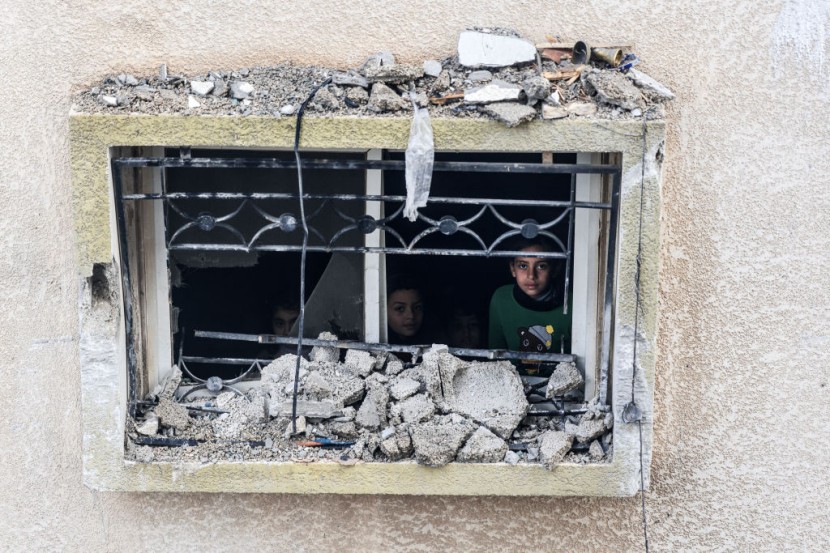After heavy international criticism, including from the U.S., Israeli Prime Minister Benjamin Netanyahu announced his plan to evacuate civilians from Rafah ahead of the military's invasion of the densely populated southern Gaza city.

Rafah borders Egypt and now holds hundreds of thousands of Palestinians living in slummy tent camps after being forced to flee their homes in Gaza.
Israel intends to move ground forces into the city and claims Rafah is the last remaining "Hamas stronghold" in Gaza.
"It is impossible to achieve the goal of the war of eliminating Hamas by leaving four Hamas battalions in Rafah," Netanyahu's office said in a statement. "On the contrary, it is clear that intense activity in Rafah requires that civilians evacuate the areas of combat."
It said he had ordered the military and security officials to come up with a "combined plan" that included both a mass evacuation of civilians and the destruction of Hamas' forces in the town.
Netanyahu has continuously rejected the international criticism over the Palestinian death toll, elaborating that Hamas is responsible for endangering civilians by operating and hiding in residential areas. The criticism continues to build, even more so in recent days as Netanyahu and other leaders vow to move into Rafah.
According to The Associated Press, U.S. President Joe Biden stated Israel's conduct in the war is "over the top." While the State Department said an invasion of Rafah in the current circumstances "would be a disaster."
The operation seems impossible as it remains unclear where Palestinians can go. The Israeli offensive is the cause of widespread destruction, especially in northern Gaza, where hundreds of thousands of people do not have homes to return to. More than half of Gaza's 2.3 million population are sheltering in Rafah, pushed against the border wall and living outside.
Egypt has repeatedly warned that any movement of Palestinians across the border into Egypt would threaten the four-decade-old peace treaty between Israel and Egypt. The border crossing, which has been closed, normally serves as a main entry point for humanitarian aid.
The AP reports Israel has already begun to launch airstrikes into Rafah. Airstrikes overnight and into Friday hit two residential buildings, while two others were bombed in central Gaza. That includes a damaged kindergarten-turned-shelter for displaced Palestinians. Twenty-two Palestinians were killed according to AP journalists who saw the bodies arriving at the hospitals.
Doctors and aid workers revealed to Reuters that they are struggling to supply basic aid and stop the spread of disease.
"No war can be allowed in a gigantic refugee camp," said Jan Egeland, Secretary-General of the Norwegian Refugee Council, warning of a "bloodbath" if Israeli operations expand there.
In a further sign of the war's impact, almost one in 10 Gazans under five are now acutely malnourished, according to initial U.N. data from arm measurements that show physical wasting, reported Reuters.
The charity ActionAid also told the publication some Gazans were eating grass.
"Every single person in Gaza is now hungry, and people have just 1.5 to 2 liters of unsafe water per day to meet all their needs," it said.
27,947 Palestinians were confirmed killed, 107 of them in the previous 24 hours, and 67,459 injured.
Hours before Netanyahu's statement, Israeli warplanes raided the area killing at least 15 Palestinians, eight of whom reside in Rafah.
"We were sleeping inside and, when the strike hit, were thrown outside. After that, another rocket hit," said Mohammed al-Nahal, an elderly Palestinian standing beside the rubble of a building that had been hit.
"It destroyed the entire home. My daughter was killed. My daughter, her husband, her son, all were martyred."
Israeli military reiterated their plan of action in Gaza is to eliminate militant cells and destroy militant infrastructure.
U.S. Secretary of State Anthony Blinken visited the Middle East this week, in the hope of bringing optimism to the region.









